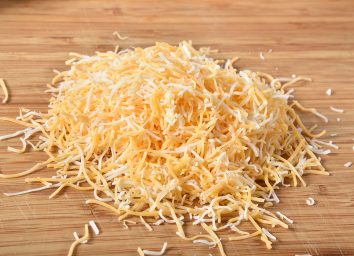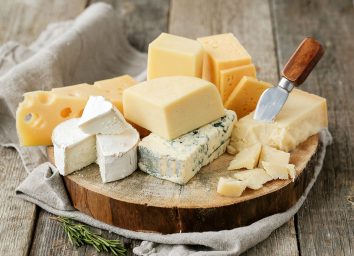6 Subtle Signs You’re Eating Too Much Cheese
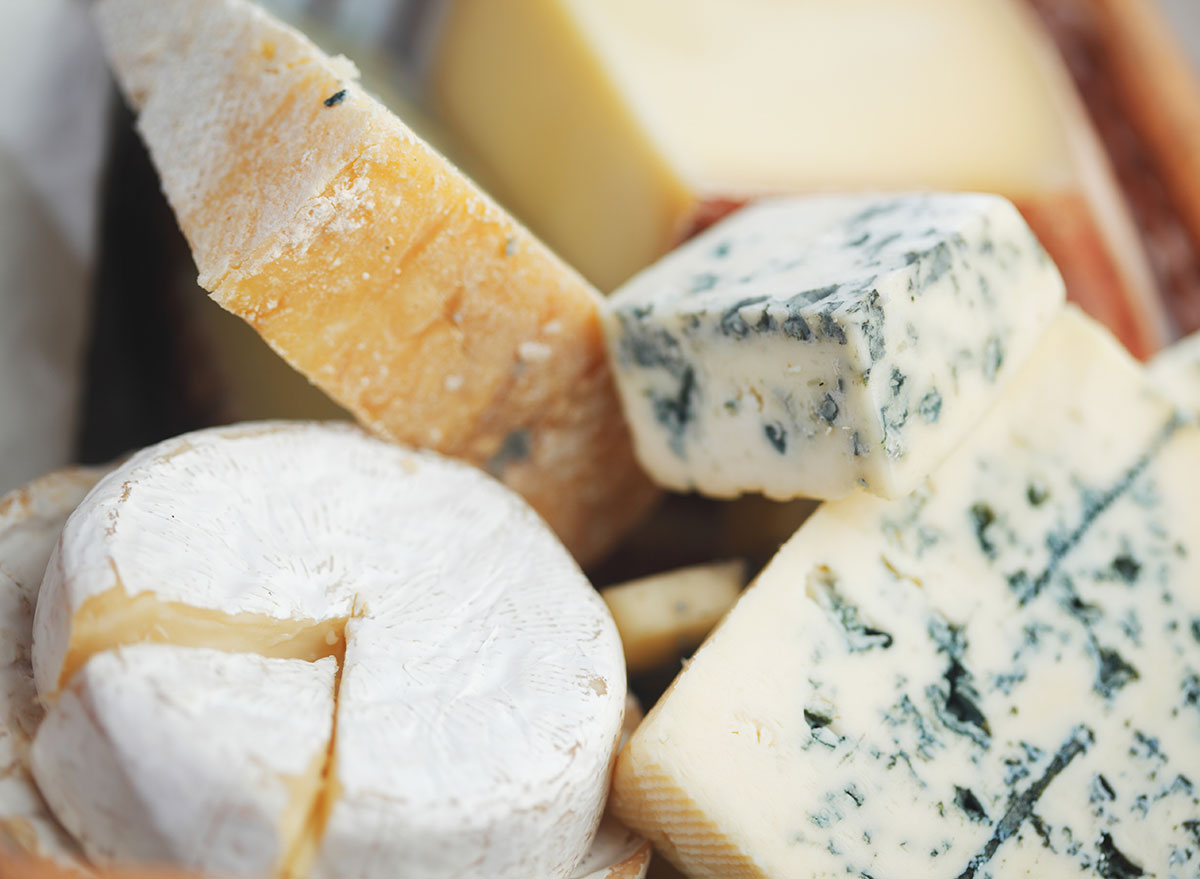
Whether you order pizza regularly, are a self-proclaimed purveyor of queso dip, or can’t say no to the dinner party cheese plate, no one here is judging your love of cheese. Cheese is delicious and there are so many great kinds to enjoy—from cheddar to brie, feta, mozzarella, and goat. But, when it comes to cheesy delights, there is such a thing as too much.
“Cheese is definitely OK to enjoy in moderation, the same as with any other food,” says Mascha Davis MPH, RDN, Private Practice Registered Dietitian Nutritionist and author of Eat Your Vitamins.
But how do you know if you are eating too much cheese? “The best way is to pay attention to your body,” says Davis. These six symptoms could easily fly under the radar, but they might be your body’s way of telling you it’s time to cut back a bit on the queso situation. (And for more healthy eating info, make sure to sign up for our newsletter.)
Gas after eating
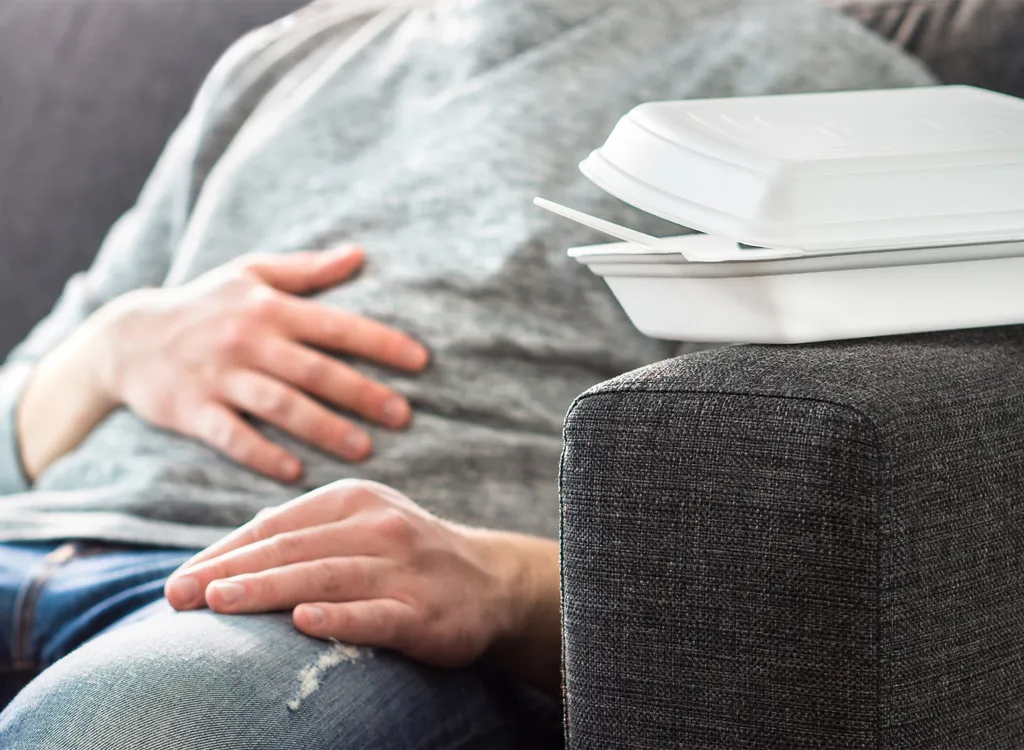
About 75% of the population is lactose intolerant—meaning, most people are unable to digest lactose, the sugar found in dairy foods. So, when you dive headfirst into that cheese board, all that dairy ferments in your intestines and can cause you to pass gas.
“[Humans have] a deficiency of the natural enzyme called lactase, which breaks down the milk sugar to make it digestible,” says Davis. “When left undigested, lactose can lead to the production of excessive gas.”
Pro tip: it might be in everyone’s best interest to skip ordering the broccoli cheddar bites on date night. (Related: What Happens to Your Body When You Can’t Have Dairy.)
High cholesterol
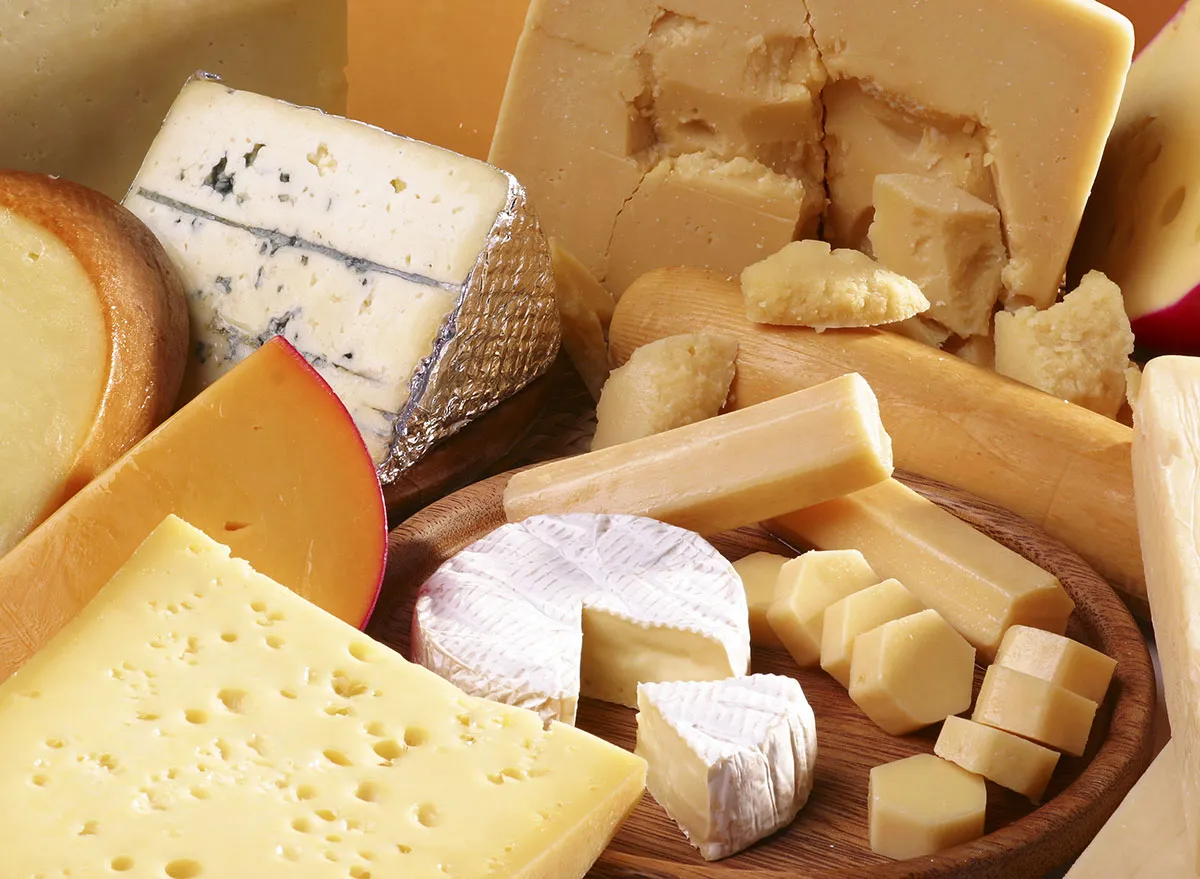
Yes, cheese is high in cholesterol—but it’s actually the food’s high levels of saturated fat that’s to blame for raising people’s cholesterol levels.
Diets high in saturated fat raise your low-density lipoprotein (LDL or “bad”) cholesterol levels, which can potentially increase your risk for developing heart disease or other health problems.
Again, cheese and saturated fat won’t kill you in moderation. But, to maintain a balanced diet and promote good cardiovascular health, Davis suggests adding more omega fat-containing foods (e.g., olive oil, fish, coconut oil, and hemp oil) to your meal rotations. (Related: 25 Best Omega-3 Foods.)
Diarrhea
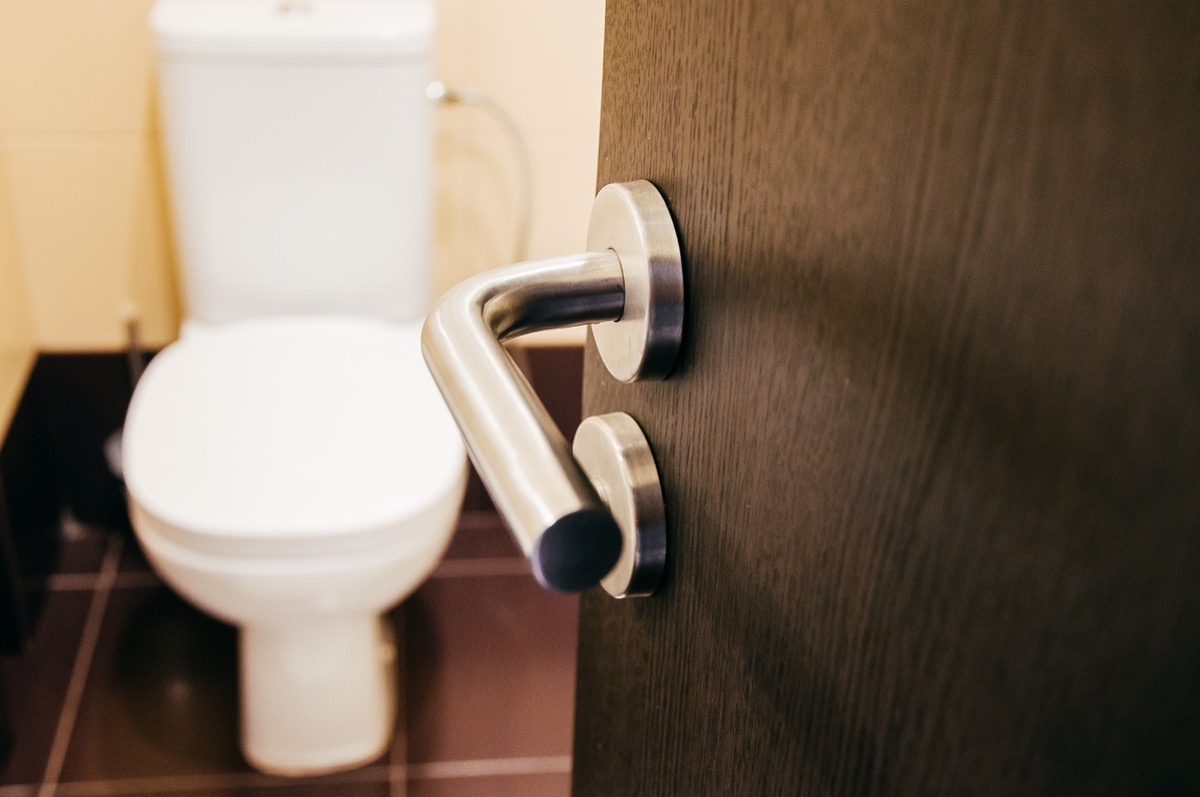
Have you ever found yourself making a mad dash for the bathroom after eating more than your fair share of cheese?
It’s not fun or pleasant, but diarrhea is a common side effect of overconsuming dairy; you may experience it a few hours after eating or the next day. “[Loose stool] occurs due to undigested lactose in the small intestine, which causes water to move into the digestive tract,” says Davis.
If you have this disagreeable symptom, drink lots of water in order to rehydrate and flush out your system. (Related: 7 Side Effects of Not Drinking Enough Water.)
Acne and other skin problems
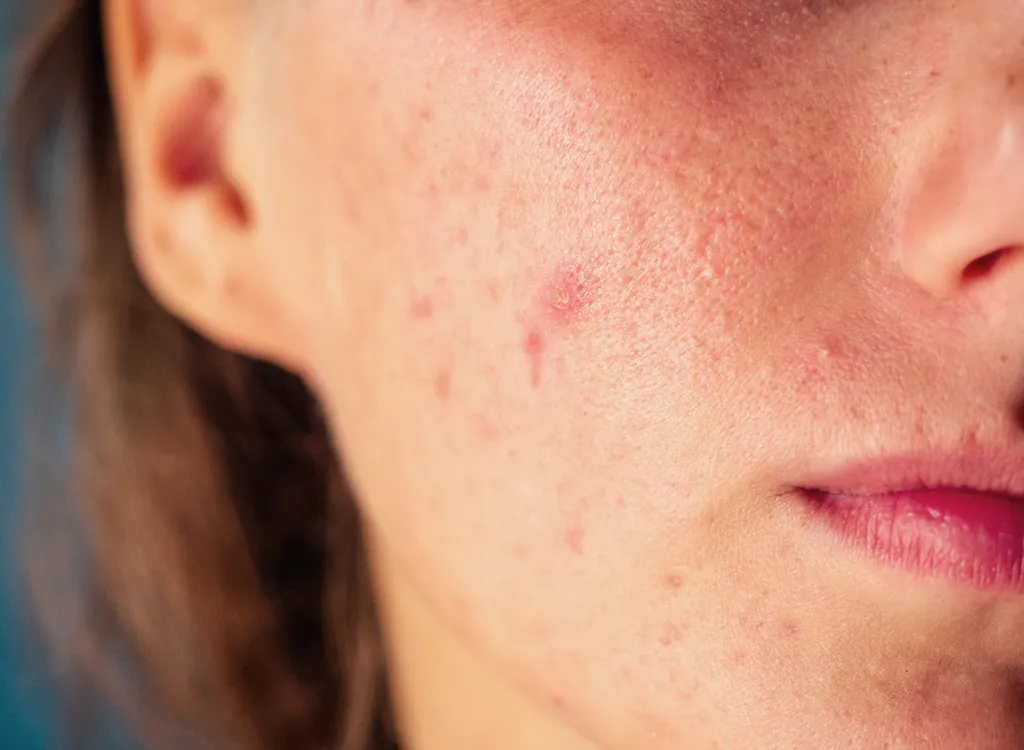
While it hasn’t yet been medically proven that dairy foods lead to acne, research shows the two definitely correlate. A 2018 study revealed that people who frequently eat dairy are more likely to have triggered acne breakouts than people who skip the cheese.
“This symptom could manifest in skin soreness, acne, rashes, blotchiness, or simply lackluster skin,” says Davis.
If you develop skin problems and consume cheese on a regular basis, Davis suggests making appointments with a dermatologist and dietitian to determine the underlying cause of your skin issues. If you can bear it, you can also try temporarily eliminating cheese from your diet (gasp!) and seeing how your skin fares after some time. (Related: 20 Foods That Age You 20 Years.)
Bloating

Cheese: it tastes so good going down, but, if you overboard, your tummy can both feel and look like a balloon afterward.
“The sensation of bloating is caused by an increase of water and gas in the colon, which causes the gut wall to stretch,” says Davis. “It’s also a symptom of lactose malabsorption, which is uncomfortable but usually harmless.”(Related: 7 Amazing Things That Happen When You Give Up Fast Food.)
Allergic reactions
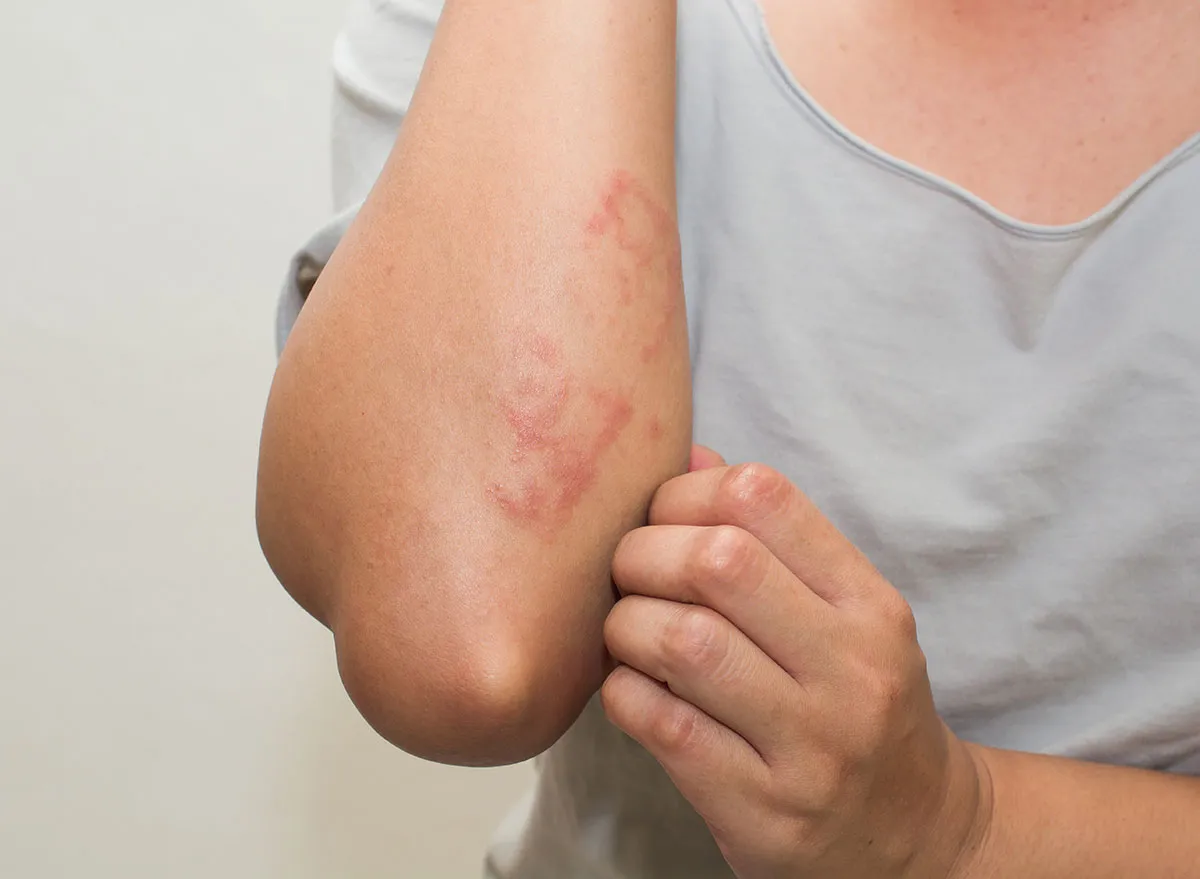
The sad truth: some people are actually allergic to cheese, which is different (and more medically serious) than lactose intolerance.
“Allergic reaction symptoms [to dairy] can show up as anything from mild rashes to severe trouble breathing,” says Davis. “If you experience any of these, it indicates high levels of histamines as your immune system responds to an allergen. Make sure to talk to your doctor if this happens.” For more, check out this hidden ingredient in shredded cheese that’s destroying your recipes.
